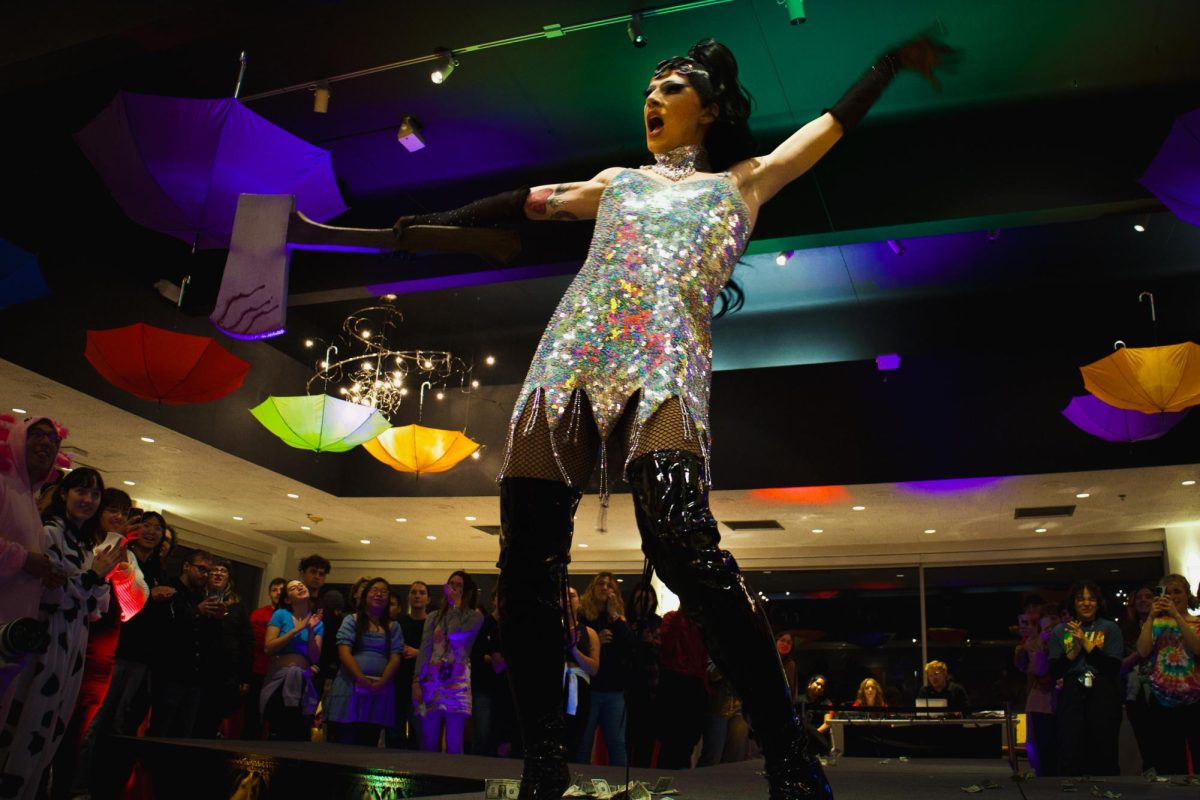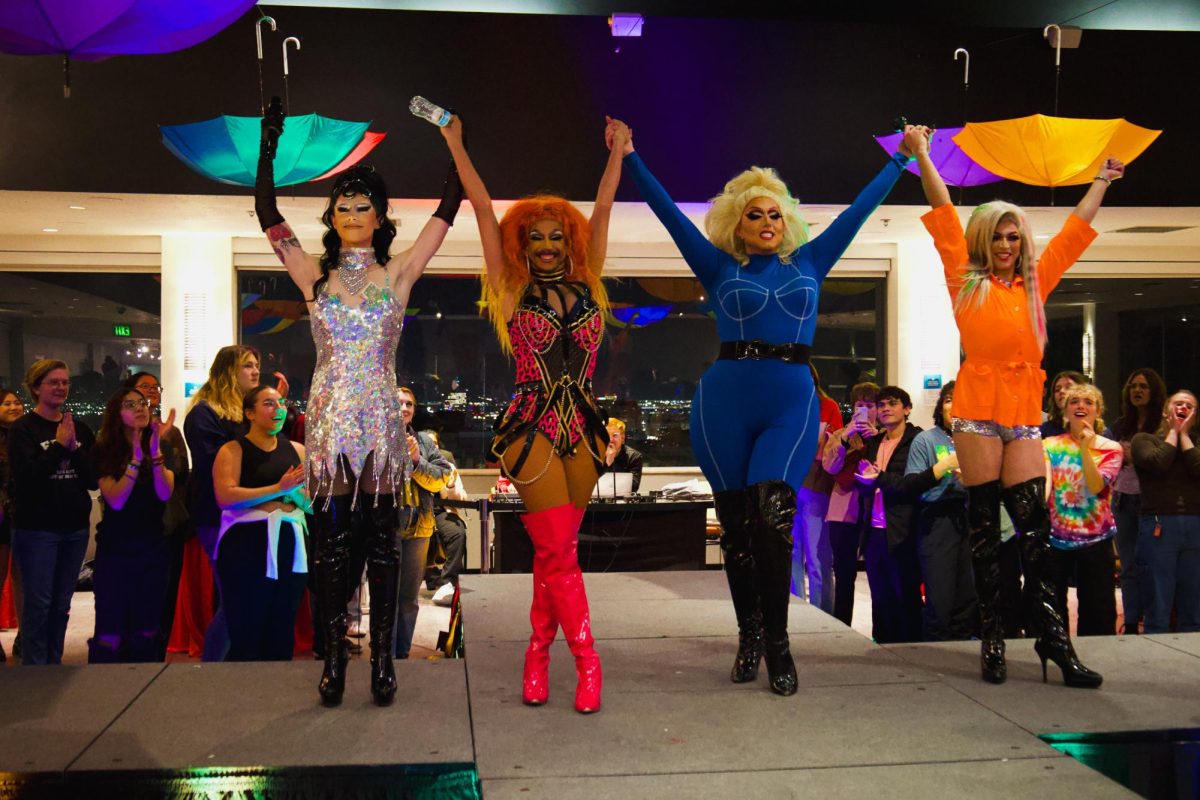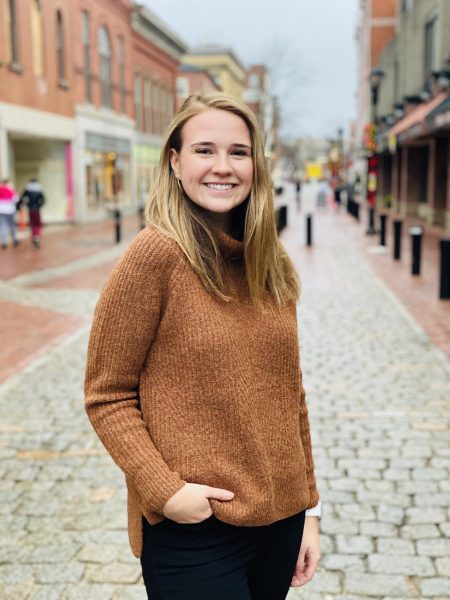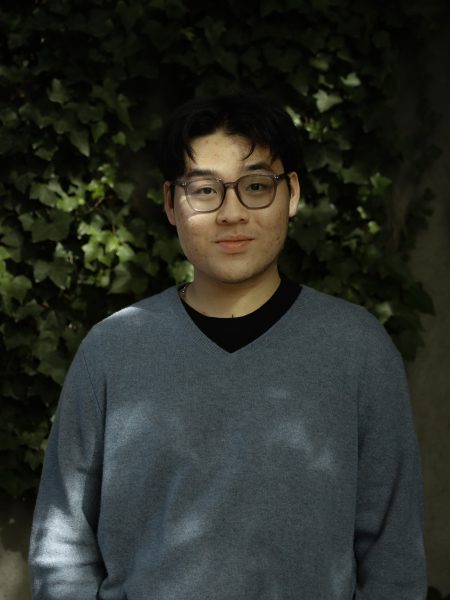“Queer people are alive and well,” said Utah drag queen Hysteria.
Hysteria hosted the University of Utah’s Fall Drag Show on Nov. 2. The show was the second drag show of 2023 run by the LGBT Resource Center and A. Ray Olpin University Union. The first was held in the spring during Pride Week and was also hosted by Hysteria.
Despite Salt Lake being located in a more conservative state, Hysteria said there are various departments within the U that are actively working to create safer spaces for students interested in exploring and learning about drag culture.
The November event featured three drag queens — Eva Chanel Stephens, KayBye and Lilia Maughn — who danced, lip-synced and performed live vocals on stage. An estimated 130 people attended the event and cheered and tipped with cash as the queens performed on stage.

Ryann Combe, marketing and communications manager for the Union, said the previous show had a large turnout, hitting capacity at Crimson View in the Union. The Union now has the goal to host a drag show each semester.
“I think the focus moving forward is to create a safe space for our students, especially in drag culture,” Combe said. In the coming years, they hope to push for more student performers, providing stipends or incentives.
Combe said they want to “provide that safe space for [students] to be their authentic selves with their student body.”
The Union isn’t the only group working towards a stronger drag community on campus.
Bryan Hubain, associate vice president of student development and inclusion at the U, said drag culture is important because it adds more diversity to campus.
“There is a whole other subculture which just adds to our richness as a university,” he said.
Hubain said he feels good about where the U is at with drag culture. While some schools’ drag culture thrives, others are non-existent.
“In terms of where we are, as a country, as a university, the people that we have here, and the students we have here. I think we’re just where we have to be,” he said.
In attendance at the drag show was a student from Utah Valley University who wished not to be named. While other students at the table did not know about any drag culture at the U, the UVU student said the U prioritizes their queer students more so than schools in Provo.
Some students said they didn’t know about drag culture at the U and thought the culture could be stronger. However, many said they were excited to experience a drag show and learn about the art.
Hubain said drag exists all around our communities.
“If we’re really thinking about the way we dress, the way people show up, all of that is drag,” he said. “We put that out there, and it’s just a great way for us to express ourselves, express our identities and that’s very empowering. … Some folks are figuring it out right now, right here and it makes this a safe space to do that.”
Drag queen Sequoia attended the show as an audience member. Hubain said Sequoia is one of the most popular drag performers in the state — and she is also a U alumni.
When attending the U in 2014, Sequoia said there was no drag culture, but she is happy to see the U now reaching out to local drag queens for performances and student engagement. She mentioned the Union, Student Development and Inclusion, and the Office of Equity, Diversity and Inclusion specifically.
When asked about future possibilities for increasing drag culture on campus, Hubain mentioned creating a drag student club. Its purpose would be to help students not only learn the makeup and contouring of drag but also learn about the art and its history.
“Drag is not all about looking pretty,” he said. “It’s about learning what informs all of it.”
He said expanding this outlet could open up another world on campus.
Hysteria also said she hopes for a strengthened culture of drag at the U. Additionally, she is a staff member and student of the U and incorporates drag into her studies.
She explained her study of interdisciplinary performance, which looks at how drag queens consciously perform on stage for an audience and then how they unconsciously perform.
“We perform our identity, our gender, how we express ourselves and we also perform biases,” Hysteria said. “And so I look at how we use both of those together.”
Additionally, Hysteria said she wants to provide support for queer students at the U.
“I think it’s just important that all of our queer family know that they have a place here,” she said. “That they’re loved and supported and that we’re always going to be here and we’re not going away.”




